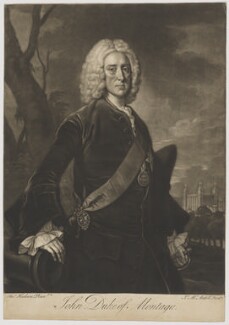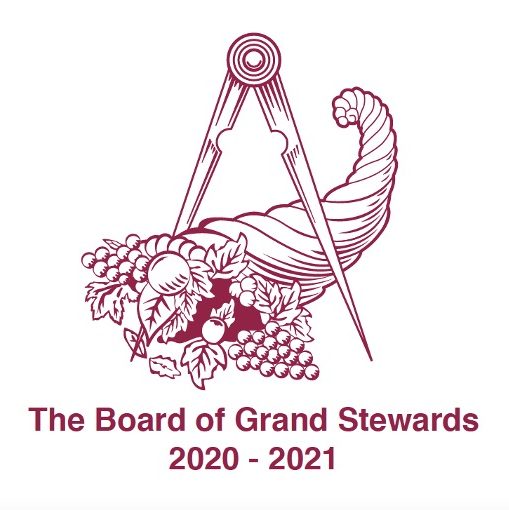
In 1721 John Montagu, the Second Duke of Montagu was elected and installed as Grand Master of Premier Grand Lodge of England, the precursor to the current United Grand Lodge of England. He was the first nobleman to be so installed.
Born in 1690, he was the son Ralph Montagu, the first Duke of Montagu by his first wife Elizabeth Wriothesley, who was in turn the daughter of Thomas Wriothesley, 4th Earl of Southampton and Lady Elizabeth Leigh.
On 17 March 1705 the then Marquess of Monthermer was married to Lady Mary Churchill, daughter of John Churchill, first Duke of Marlborough and his wife Sarah Churchill.
Something of a polymath, the Duke of Montagu studied medicine at Cambridge, was admitted to the Royal College of Physicians in 1717, made a Knight of the Garter in 1719, made a member of the Order of the Bath the same year and a fellow of the Royal Society in 1725. He was Governor of St Lucia and St Vincent in 1722 and the Isle of Wight from 1733 to 1734. He went on to be made a member of the Privy Council in 1735 and to serve as one of the Lords Justices of the Realm from 1745 to 1748. He was a Founding Governor of the Foundling Hospital in 1739 and raised a cavalry regiment known as Montagu’s Carabineers in 1745. On his death his London house served a home for his and several national collections, becoming in time the British Museum, complete with the collections.
Militarily speaking Montagu served with John Churchill, first Duke of Marlborough, in Flanders during the War of Spanish Succession in 1706. Despite not being entirely suited to military life he was appointed Colonel of the First Troop of Horse Guards (1st Life Guards), from 1715 to 1721, Major-General in 1735, Lieutenant-General in 1739, Colonel of the 3rd Cavalry Regiment (later 2nd Dragoon Guards, or Queen’s Bays) in 1740 and General in 1745, the same year as he formed his eponymous Carabineers. He was Master-General of the Ordnance from 1740 to 1741 and again from 1742 to 1749. He also served as Master Forester and Warden of Rockingham and Lord Lieutenant of Northamptonshire and Warwickshire from 1715 until his death.
In the Royal Household he was appointed Master of the Great Wardrobe in 1709 and officiated as Lord High Constable at the coronation of King George I on 20 October 1714. Montagu was Captain of the Gentlemen Pensioners from 1734 to 1740.
Notably for a different age he supported two Black British figures, Ignatius Sancho and Francis Williams, primarily through education, the former becoming a composer, actor, writer and the first known black person to vote in a British election, and allegedly sending the latter to his alma mater, Cambridge University, which although widely reported it must be noted the University has no record of this.
He was known to enjoy practical jokes, and the Duchess of Marlborough wrote of him that “All his talents lie in things only natural in boys of fifteen years old, and he is about two and fifty; to get people into his garden and wet them with squirts, and to invite people to his country houses and put things in beds to make them itch, and twenty such pretty fancies as these.” Montagu was said to have dunked the political philosopher Montesquieu in a tub of cold water as a joke.
Montague was the fourth Grand Master of the Premier Grand Lodge elected to that office, succeeding Anthony Sayer, George Payne (in both 1718 and 1720) and John Theophilus Desaguliers.
One of his defining formal actions was to commission James Anderson to write his Constitutions. His less formal to bring many noble and titled men into the Craft, securing in time its Royal Patronage and support.
The Grand Master passed to the Grand Lodge Above on 5 July 1749.
